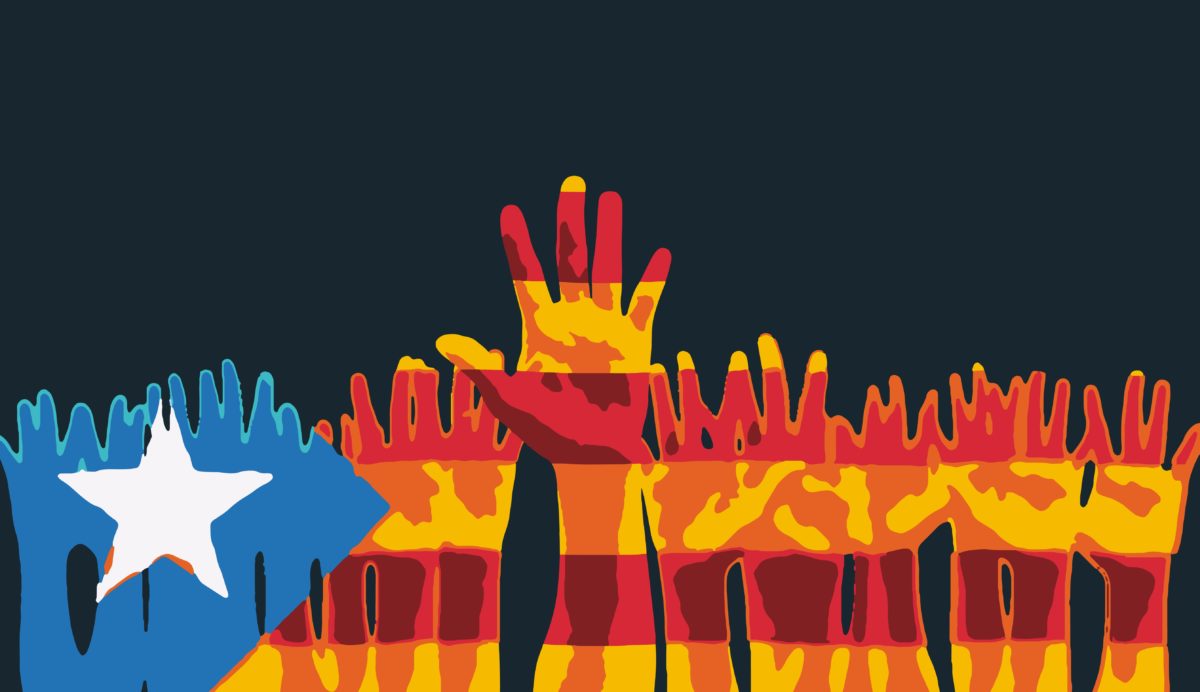Dr Paul Kennedy is Lecturer in Spanish and European Studies at the University of Bath's Department of Politics, Languages and International Studies.
Friday 27th October will go down as one of the most extraordinary dates in contemporary Spanish political history. Refusing to call regional elections and thereby circumvent the Spanish central government’s triggering of Article 155 of the Constitution, the now former Catalan president Carles Puigdemont instead defiantly pressed ahead with a vote in the regional assembly, which duly endorsed independence. Spain’s Senate responded by approving the actions proposed by the cabinet under Article 155, enabling prime minister Rajoy to dismiss the regional government, impose direct rule from Madrid, and announce regional elections to be held on 21st December. He indicated that his government had to act to ensure that Catalonia once again observed its legal and constitutional obligations.
Despite being dismissed, Puigdemont advocated ‘democratic resistance’, thereby rejecting the validity of Article 155 and, implicitly, Madrid’s authority to intervene. Absent throughout the weekend, Puigdemont resurfaced in Brussels at the start of the following week, together with five members of his cabinet. Whether he and his colleagues planned to claim political asylum or return to face justice remained unclear at the time of writing. Puigdemont’s departure must be viewed within the context of the Spanish Attorney General’s decision to press charges of rebellion, sedition and embezzlement against the former president and leading members of his government, relating to their unconstitutional unilateral declaration of independence. Although the ruling would have to go through further legal hoops to be acted upon, and no order was immediately issued to arrest the former leaders, the charges are serious and carry prison terms of up to thirty years.
Attention now turns towards potentially explosive regional elections in the run-up to Christmas. Rajoy’s decision to send Catalan voters back to the polls is not without risk; his own political fate is now inextricably linked to the Catalan standoff. He may have calculated that the very act of Madrid calling elections presents supporters of independence with a dilemma: participation tacitly implies acknowledgement of the validity of Rajoy’s decision to activate Article 155. Puigdemont’s centre-right Catalan European Democratic Party (PDeCAT) and former deputy president Oriol Junqueras’ Republican Left (ERC) have – for now – indicated that they will take part in the elections. However, before its dismissal on 27th October, Puigdemont’s government was dependent on the support of the ten representatives of the far-left, anti-system Popular Unity Candidacy (CUP) to secure an overall majority. The CUP was influential in ensuring that Puigdemont was not tempted to backslide towards a more pragmatic stance. The party also played a key role in forcing the resignation as president of Puigdemont’s predecessor, Artur Mas, following the last regional elections, held in September 2015. Given its rejection of the central government’s authority, it is by no means certain that the CUP will put forward candidates for the December elections.
One of the central government’s concerns is that the shift towards independence witnessed in Catalonia since 2012 has served to weaken the more moderate, centre-right PDeCAT, which, under its previous incarnation as Convergence and Union, dominated Catalan regional politics for the greater part of the last four decades. Seeking to retain popularity within the context of implementing severe austerity, as well as endeavouring to distance itself from the myriad corruption allegations which have plagued former CiU leader and regional president Jordi Pujol, the PDeCAT has found the (reductionist) narrative of Madrid ‘robbing’ Catalonia politically useful. Nevertheless, the PDeCAT has struggled with the dilemmas inherent in its belated adoption of a pro-independence stance over recent years, while its somewhat unlikely radical-left bed-fellows, ERC and the CUP, have thrived. It is possible that ERC will emerge as the dominant pro-independence force in the December election. The decision by over 1,000 companies to move their headquarters out of Catalonia on account of recent developments may also further serve to dent support for the avowedly pro-business PDeCAT.
The parties in favour of Catalonia remaining within Spain possess their own set of dilemmas. Rajoy’s Popular Party (PP) has always struggled in Catalonia as moderate, centre-right voters have instead been drawn to the CiU/PDeCAT; the Catalan branch of the Socialist Party, the PSC, has experienced its own quandaries on the issue of independence; and Podemos’ Pablo Iglesias has recently had to admonish leading figures within the Catalan incarnation of his party for flouting the party line and unambiguously supporting independence – a loss of support towards the CUP will be of concern to the Podemos leader. Albert Rivera’s centre-right Ciutadans (Citizens), whose raison d’être is opposition to Catalan independence, has the luxury of an unambiguous stance on the issue and may be placed to do well in December.
It is to be hoped that the election campaign takes place in a peaceful manner with no repeat of the scenes of police violence which marred the referendum held on 1st October, effectively playing into the hands of Puigdemont, and attracting the attention of an astonished international community. Whatever the result of the election, it is unlikely to put an end to Spain’s worst political crisis in four decades. For that, nothing less than the reform of Catalonia’s Autonomy Statute, or even an imaginative re-writing of the 1978 Constitution, may be necessary to address Catalan grievances and re-establish a degree of normality.
Respond




